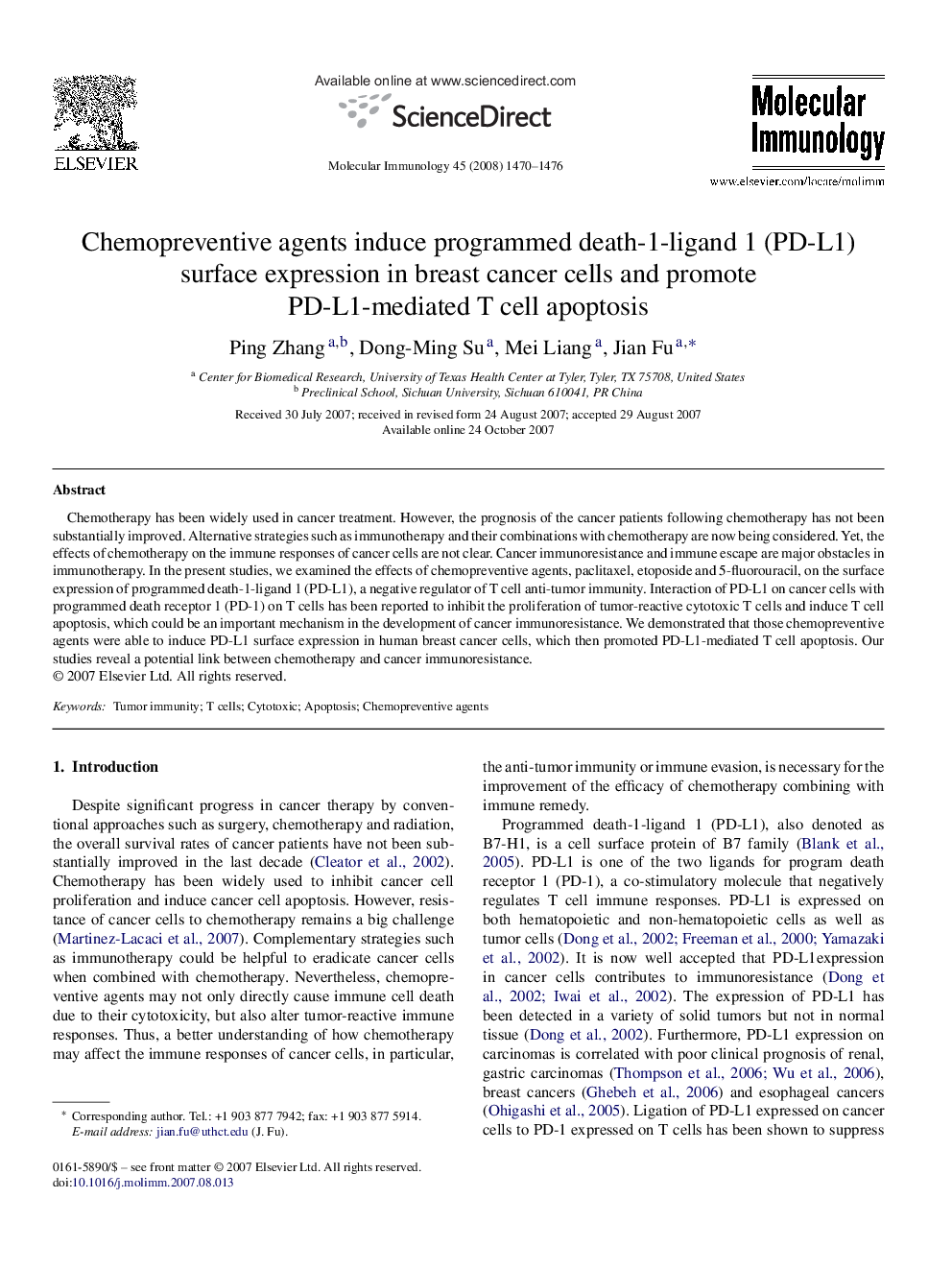| Article ID | Journal | Published Year | Pages | File Type |
|---|---|---|---|---|
| 2832832 | Molecular Immunology | 2008 | 7 Pages |
Chemotherapy has been widely used in cancer treatment. However, the prognosis of the cancer patients following chemotherapy has not been substantially improved. Alternative strategies such as immunotherapy and their combinations with chemotherapy are now being considered. Yet, the effects of chemotherapy on the immune responses of cancer cells are not clear. Cancer immunoresistance and immune escape are major obstacles in immunotherapy. In the present studies, we examined the effects of chemopreventive agents, paclitaxel, etoposide and 5-fluorouracil, on the surface expression of programmed death-1-ligand 1 (PD-L1), a negative regulator of T cell anti-tumor immunity. Interaction of PD-L1 on cancer cells with programmed death receptor 1 (PD-1) on T cells has been reported to inhibit the proliferation of tumor-reactive cytotoxic T cells and induce T cell apoptosis, which could be an important mechanism in the development of cancer immunoresistance. We demonstrated that those chemopreventive agents were able to induce PD-L1 surface expression in human breast cancer cells, which then promoted PD-L1-mediated T cell apoptosis. Our studies reveal a potential link between chemotherapy and cancer immunoresistance.
